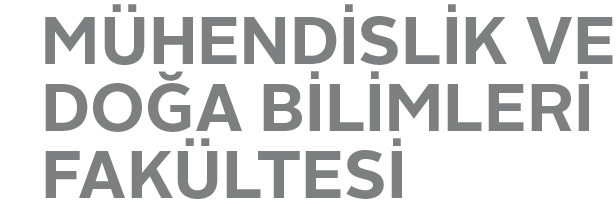Title: Personalized medicine from an engineer's perspective
Speaker: Mehmet Gonen
Date/Time: December 24, 2014 - 12:40-13:30
Place: FENS L045
Abstract:
In the future, machine learning will become even more widespread to analyze high-dimensional data coming from complex systems such as cancer. In this vein of research, my current research agenda integrates optimization and statistics into computational biology. I will discuss two different applications where we proposed novel machine learning algorithms to help clinical researchers interpret genomic data collected to develop personalized medicine strategies.
We studied kernel k-means clustering under the multiview setting and propose a novel optimization problem that combines kernels with sample-specific weights to obtain better clusterings. We demonstrated the better performance of our algorithm on the human colon and rectal cancer data set provided by the Cancer Genome Atlas consortium, where we used three genomic characterizations of the patients (i.e., DNA copy number, mRNA gene expression, and DNA methylation) for clustering. Our localized data fusion approach obtained more relevant prognostic patient groups than global fusion approaches when we evaluated the results with respect to three commonly used clinical biomarkers (i.e., micro-satellite instability, hypermutation, and mutation in BRAF gene).
Cancer requires personalized therapies due to its inherent heterogeneous nature. Large-scale pharmacogenomic screens of molecularly characterized samples have been generated with the hope of identifying genetic predictors of drug susceptibility. Thus, computational algorithms capable of inferring robust predictors of drug responses from genomic information are of great practical importance. Most of the existing computational studies that consider drug susceptibility prediction against a panel of drugs formulated a separate learning problem for each drug, which cannot make use of commonalities between subsets of drugs. We proposed to solve this problem in a multitask learning framework by formulating a novel statistical machine learning algorithm. Our algorithm obtained the best result in a crowdsourcing challenge organized by the U.S. National Cancer Institute, which considered a breast cancer cell line data set.
Bio:
Mehmet Gönen received the B.Sc. degree in industrial engineering, the M.Sc. and the Ph.D. degrees in computer engineering from Boğaziçi University, İstanbul, Turkey, in 2003, 2005, and 2010, respectively. He did his postdoctoral work at the Helsinki Institute for Information Technology HIIT, Department of Information and Computer Science, Aalto University, Espoo, Finland. He then was a senior research scientist at Sage Bionetworks, Seattle, WA, USA. He is currently a research assistant professor in the Department of Biomedical Engineering, School of Medicine, Oregon Health & Science University, Portland, OR, USA. His research interests include optimization for machine learning, statistical machine learning, kernel methods, cancer biology, and personalized medicine
Contact: Hüsnü Yenigün

